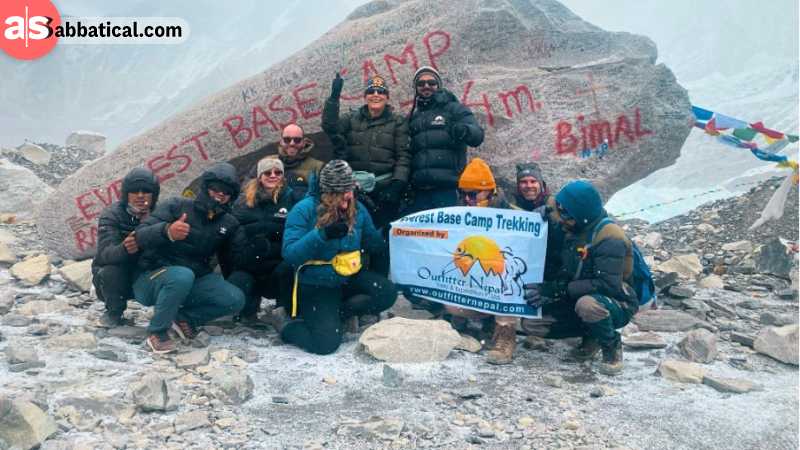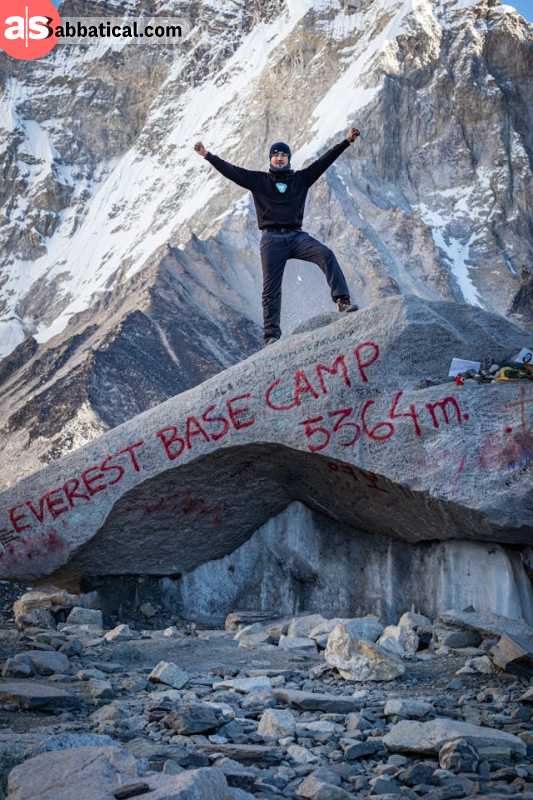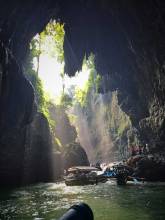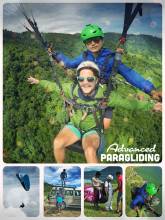How to Train for the Everest Base Camp Trek: A Beginner’s Guide to Fitness and Preparation
Everest Base Camp Trek is one of the world's most iconic and thrilling adventures. The main highlight of the journey is the stunning view of Mount Everest, the highest peak on Earth. This exciting trekking excursion takes you through breathtaking Himalayan landscapes and remote villages of the Khumbu region. However, to explore the mesmerizing beauty of Everest, you require proper preparation, as you must overcome challenging terrain and high altitudes. Whether you are a novice trekker or an experienced adventurer, this article will guide you with a proper training regime and perfect planning to turn your EBC dream into reality.

Why Training is Essential for the EBC Trek?
Everest Base Camp Trek demands excellent physical fitness and mental endurance. During this adventure in the Himalayas, you will hike 5 to 7 hours daily for about 12 to 14 days. You will also cover approximately 130 kilometers round trip. The highest point of the expedition reaches around 5,364 meters. Such staggering altitude means low atmospheric oxygen levels, a significant trekking threat. Moreover, this elevation gain may lead you to risk altitude sickness, exhaustion, and injuries. Therefore, you require proper preparation and a training plan to build the stamina, strength, and mental resilience needed to conquer the EBC. Here’s a detailed guide for a beginner aiming to reach the foot of Mount Everest.
Understand the Challenges of the EBC Trek
Before heading to the Everest Base Camp journey, you must know the challenges you will face on the trail. Let’s understand the difficulties you might experience on the trek and prepare the training regime accordingly.
- Altitude: The EBC lies at an altitude of 5,364 meters. You will start your expedition from Kathmandu at around 1400 meters. Such staggering elevation gain means you will experience low air pressure the higher you go. This can lead to altitude sickness and hamper your trip.
- Distance: The total distance of the EBC Trek is around 130 kilometers. You will walk about 10 to 15 kilometers daily on rugged terrain.
- Duration: The Everest Base Camp Trek is a long journey. This trekking excursion takes about 12 to 14 days, depending on your itinerary. You will hike 5 to 7 hours daily to finish the trip on time.
- Weather: Weather in the Everest region can be unpredictable. You may experience sudden temperature changes in the Himalayas, from sunny days to freezing nights and occasional rain or snowfall.
- Weight of Backpack: You will carry a daypack weighing 5 to 7 kilograms, containing essentials like water, snacks, and trekking gear. Carrying such weight can be tiring during long days of hiking.
Include Cardio Training for Endurance
The Everest Base Camp trek requires excellent cardiovascular endurance. You will hike for hours at a high altitude with low oxygen levels, which requires high stamina. We recommend following the activities listed below to boost your endurance.
- Walking: Start your insurance training with 30-minute walks 3 to 4 times a week. Then, gradually increase the duration to 1 to 2 hours. This will prepare you to walk for long hours on the rugged trails of the Himalayas.
- Hiking: Go for practice hikes on weekends. Pick trails with varied terrains and inclines to mimic the conditions of the Everest region.
- Cycling: Include cycling sessions to improve leg strength and endurance. Stationary cycling in the gym or biking on the road is an excellent exercise to boost your stamina.
- Running or Jogging: Indulge in running or jogging 2 to 3 times a week. Try to keep a steady pace and don’t overdo it.
Indulge in Strength Training for Stability
To reach the base camp, you must navigate rocky paths and climb steep accents while carrying a backpack. This requires strong legs, core, and shoulders. Strength training allows you to achieve that and reduces the risk of injuries. Here are some workouts to help you strengthen your body for the trek.
Lower Body Workouts
- Lunges(3 sets of 12) to strengthen quads and hamstrings.
- Squats(3 sets of 12) to build powerful leg muscles.
- Stepups to simulate climbing.
Core Workouts
- Planks (1-2 minutes) to improve core stability.
- Russian Twists to strengthen oblique muscles.
- Mountain Climbers to add endurance and core strength.
Upper Body Workouts
- Pushups to strengthen chest, shoulders, and arms.
- Dumbbell Rows to improve back and shoulder stability.
Incorporate Flexibility and Balance Exercises
Stretching and balance exercises are crucial for trekking. They help prevent stiffness and injuries during the trek. Some of the exercises to maintain your flexibility and balance are as follows.
Yoga and Stretching Session
Incorporate yoga or stretching sessions 2 to 3 times a week. Focus on stretching your hamstring, hip flexor, calf, and shoulder rolls.
Balance Exercises
Practice simple balance drills, such as standing on one foot. A balance board can also help you improve stability.
Simulate Trek Conditions
Practice hikes and altitude training are the best ways to mimic the trail conditions of the Everest region. Try to hike higher altitudes with a weighted backpack once a week. This will allow your body to adapt to the elevation and low atmospheric pressure.
Build Mental Resilience
The EBC Trek requires determination and mental endurance. Such mental resilience helps you tackle long hiking hours and deal with unpredictable weather. Here are some tips to prepare yourself mentally.
- Stay Positive and remind yourself why you’re taking on this adventure.
- Practice meditation to stay calm and focused.
- Focus on one step at a time instead of the entire journey.
Focus on Nutrition and Hydration
Balanced diet and hydration are essential during your training and trek. This fuels your body with energy to overcome the challenges on the trail and move forward. Make sure you follow the tips listed below.
- Include carbs, proteins, and healthy fats in your diet.
- Drink at least 3 to 4 liters of water during training and hike.
- Eat high-energy snacks like nuts and fruits during hikes.
- Avoid alcohol, caffeine, and narcotics at higher altitudes.
Invest in Proper Trekking Gear and Equipment
Trekking gear is mandatory while hiking to Everest Base Camp. Being comfortable with your gear is a critical part of preparation. Therefore, invest in the following essentials to complete the journey.
- Invest in high-quality trekking boots.
- Use moisture-wicking layers and pack for varying temperatures.
- Purchase a sturdy backpack and practice carrying it during training.
Set a Training Timeline
It is best to begin training at least 3 to 6 months before your trek. This allows your body to build strength and endurance, which is essential for long days of walking. Here’s a basic 3 months training timeline to prepare yourself for the adventure in the Everest region.
- Month 1: First, build a basic fitness foundation with regular walking, light cardio, and stretching.
- Month 2: Increase the intensity of the training gradually by adding hikes, strength training, and intense cardio.
- Month 3: Go for longer practice hikes with a weighted backpack to simulate the trek conditions and train for altitude.
Weekly Training Plan
Here’s a simple training regime to help you prepare for your trek to EBC.
Week 1-4
- Monday: 30-minute walk and stretching
- Tuesday: Rest
- Wednesday: 1-hour cardio (cycling or jogging)
- Thursday: Strength training (lower body and core)
- Friday: Rest
- Saturday: 2-hour hike with a daypack
- Sunday: Yoga or stretching
Week 5-12
- Monday: 1-hour walk and strength training
- Tuesday: Rest
- Wednesday: 1-hour hike with incline
- Thursday: Strength training (whole body)
- Friday: Rest
- Saturday: 4-hour hike with a weighted daypack
- Sunday: Yoga or stretching
Final Preparations Before the Trek
Once you have completed your fitness training, it’s time for your final preparation. Undergo the following measures to prepare thoroughly for the Everest adventure.
- Consult your doctor for a general health checkup. Get prescribed medication like Diamox for altitude sickness if needed.
- Ensure you are vaccinated for hepatitis, typhoid, and tetanus.
- Double-check your gear and ensure everything is functional.
- Include adequate acclimatization days while choosing an itinerary.
- Get comprehensive travel insurance with coverages, including high-altitude trekking, trip cancellation, helicopter evacuations, and medical assistance.
Final Thoughts
Everest Base Camp Trek is a once-in-a-lifetime experience but requires proper preparation. Focus on building your endurance, strength, and mental resilience. This will prepare you well for this adventure. Start your training early, follow a structured plan, and keep your determination high. With the proper preparation, you will conquer the Everest Base Camp with unforgettable memories for a lifetime.
So, are you ready to embark on the EBC journey? If so, please contact us at Outfitter Nepal for an incredible trekking experience in the Himalayas.













